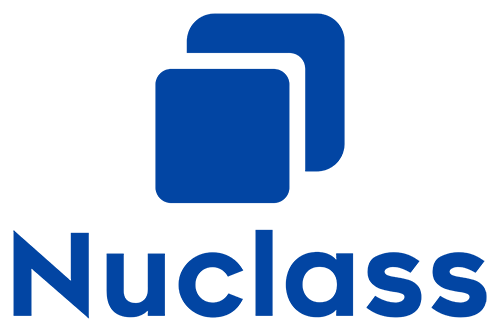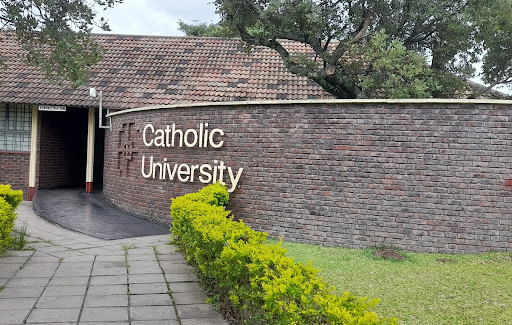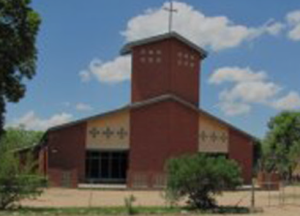The Essentials
Type of Institution: University
Fees per Semester: US$400.00 to US$1 200.00
Address: 18443, Cranborne Avenue, Hatfield, Harare, Zimbabwe
Phone Number: +263 8688002370
Chancellor: E.D Mnangagwa
Vice Chancellor: Prof. Ranga Zinyemba
Number of students: 1000+
Website: https://cuz.ac.zw/
Email: info@cuz.ac.zw
Table Of Contents
- Overview
- Contact Details
- Address
- Location
- School Fees
- Courses & Programs
- Vacancies and Entry Requirements
- Logo
- Notable Alumni
- Pros and Cons
- Author’s Review
Overview
The Catholic University of Zimbabwe (CUZ) is a prominent private institution located in Harare, Zimbabwe, affiliated with the Roman Catholic Church. Founded in 1999, CUZ is dedicated to providing high-quality education that integrates academic excellence with Catholic values and principles.
Mission and Vision
Mission: The Catholic University of Zimbabwe aims to develop ethical, knowledgeable, and socially responsible graduates who can contribute positively to society. The university emphasizes the holistic development of students, combining intellectual growth with moral and spiritual formation.
Vision: CUZ envisions becoming a leading institution of higher learning in Zimbabwe, known for academic rigor, research excellence, and a commitment to social justice and ethical leadership.
Research and Development
#The university emphasizes research as a key component of its academic programs, encouraging students and faculty to engage in research projects that address social, economic, and ethical issues in Zimbabwe and beyond.
#CUZ hosts seminars, workshops, and conferences that foster intellectual exchange and contribute to the body of knowledge in various fields.
Catholic Identity
#As a Catholic institution, CUZ integrates Catholic teachings and values into its curriculum and campus life. Students are encouraged to participate in spiritual activities, community service, and ethical discussions that align with the Catholic faith.
#The university maintains a chapel and offers pastoral care to students and staff, promoting a sense of community and spiritual well-being.
Campus and Facilities
#The CUZ campus in Harare is equipped with modern facilities, including lecture halls, a library, computer labs, and recreational areas. The university also provides access to online resources and e-learning platforms to support students’ academic needs.
#CUZ is committed to creating an inclusive and supportive environment for all students, regardless of their religious background.
Community Engagement
#CUZ actively engages with the local community through outreach programs, partnerships with non-governmental organizations (NGOs), and social initiatives aimed at improving the lives of marginalized populations.
#Students are encouraged to participate in community service projects, which are an integral part of the university’s mission to foster social responsibility.
Accreditation and Recognition
#The Catholic University of Zimbabwe is accredited by the Zimbabwe Council for Higher Education (ZIMCHE) and recognized as a reputable institution of higher learning in the country.
#The university’s degrees and qualifications are widely respected, and its graduates are known for their ethical standards and professional competence.
Catholic University of Zimbabwe Contact Details
You can contact Catholic University of Zimbabwe via their landline, email or you can visit their website for further contact details.
Phone Number: +263 8688002370
Website: https://cuz.ac.zw/
Email: info@cuz.ac.zw
Catholic University of Zimbabwe Address
18443, Cranborne Avenue, Hatfield, Harare, Zimbabwe
Catholic University of Zimbabwe Location
Catholic University of Zimbabwe (CUZ) is situated in the capital city of Zimbabwe, Harare, on Cranborne Avenue in a suburb called Hatfield.
Catholic University of Zimbabwe Fees
Lupane State University’s fees is currently standing at US$400.00 to US$1 200.00 per semester depending on the program you are studying and the level of degree you are studying. Please contact the institution or visit them to get the latest fees structure as it can change at any term or semester.
Catholic University of Zimbabwe Courses & Programs
The Catholic University of Zimbabwe (CUZ) offers a variety of undergraduate, postgraduate, and short courses across multiple faculties.
Faculty of Commerce
Undergraduate Programs:
Bachelor of Business Management and Information Technology
Focuses on integrating business management principles with information technology skills.
Bachelor of Accounting and Finance
Covers accounting principles, financial management, auditing, and taxation.
Bachelor of Entrepreneurship
Emphasizes innovation, business planning, and entrepreneurship skills.
Faculty of Humanities and Social Sciences
Undergraduate Programs:
Bachelor of Arts in Development Studies
Examines socio-economic development, poverty alleviation, and policy analysis.
Bachelor of Arts in Theology
Provides in-depth study of religious texts, ethics, and the history of Christianity.
Bachelor of Arts in Psychology
Focuses on human behavior, mental health, and psychological research methods.
Faculty of Education
Undergraduate Programs:
Bachelor of Education in Early Childhood Development
Prepares educators to teach and support young children in early learning environments.
Bachelor of Education in Primary Education
Focuses on teaching methodologies and curriculum development for primary school teachers.
Bachelor of Education in Special Needs Education
Equips teachers with the skills to educate and support students with special needs.
Postgraduate Programs:
Master of Business Administration (MBA)
Advanced study in business management, leadership, and strategic decision-making.
Master of Education (M.Ed.)
Specializations may include Curriculum Studies, Educational Management, and more.
Master of Theology (M.Th.)
Advanced theological studies, including research in religious texts and doctrines.
Short Courses and Professional Development
Project Management
Provides skills and knowledge for effective project planning and execution.
Leadership and Management
Focuses on developing leadership skills in various organizational settings.
Counseling
Offers foundational skills in counseling practices and mental health support.
Religious Studies
Short courses focusing on specific aspects of theology, ethics, and religious history.
Professional Courses
Certified Courses in Accounting
Short courses in specific areas of accounting, such as Taxation, Financial Reporting, and more.
Information Technology Certifications
Courses aimed at improving IT skills, including web development, networking, and software applications.
Other Programs
Research and Thesis Programs
Available for students pursuing advanced studies in specific areas of interest within their disciplines.
These offerings reflect the Catholic University of Zimbabwe’s commitment to providing a well-rounded education that combines academic excellence with ethical and spiritual growth. The specific availability of programs may vary by year, so it’s advisable to check with the university for the most current course offerings.
Catholic University of Zimbabwe Vacancies and Entry Requirements
The Catholic University of Zimbabwe (CUZ) provides various educational opportunities across its undergraduate, postgraduate, and short courses.
Undergraduate Programs
Vacancies: Available in faculties such as Commerce, Humanities and Social Sciences, and Education.
Entry Requirements:
A-Level Qualifications:
#Minimum of two A-Level passes in relevant subjects.
#Specific programs may require particular subjects (e.g., Mathematics for Business or IT-related programs).
O-Level Requirements:
#A minimum of 5 O-Level passes, including English Language.
#Mathematics is required for certain programs like Accounting and Business Management.
Mature Entry: Applicants aged 25 or older with relevant work experience and at least 5 O-Level passes may be considered under mature entry schemes.
Postgraduate Programs
Vacancies: Available in areas such as Business Administration, Education, and Theology.
Entry Requirements:
Undergraduate Degree: A relevant bachelor’s degree from a recognized institution.
Work Experience: For certain programs like the Master of Business Administration (MBA), relevant work experience may be required (typically 2-3 years in a managerial position).
Professional Qualifications: Equivalent professional qualifications may also be considered.
Recommendation Letters: Some programs might require letters of recommendation, especially for applicants coming from professional backgrounds.
Short Courses and Professional Development Programs
Vacancies: Available continuously, depending on demand and scheduling.
Entry Requirements:
Basic Education: At least O-Level qualifications are usually required.
Specific Prerequisites: Some courses may have specific entry requirements, such as prior knowledge or experience in a particular field.
Age Requirement: There may be age considerations, especially for professional development courses, where adult learners with work experience are preferred.
Application Process
Application Forms: Prospective students can obtain application forms from the university’s admissions office or download them from the CUZ website.
Supporting Documents: Applicants are required to submit certified copies of their academic certificates, national ID or passport, and other relevant documents.
Entrance Exams/Interviews: Depending on the program, applicants might need to undergo an entrance exam or attend an interview.
Application Fees: A non-refundable application fee is usually required.
Submission Deadlines: Application deadlines vary depending on the program and intake period (usually January and August). Applicants should check with the university for specific dates.
Scholarships and Financial Aid
CUZ offers a limited number of scholarships and financial aid options based on merit and need. Applicants interested in financial aid must submit additional documentation, such as financial statements or proof of income.
Transfer Students
Transfer Credits: Students transferring from other recognized institutions may apply for credit transfers. Transcripts from previous institutions and detailed course descriptions are required.
Entry Requirements: Transfer students must meet the minimum entry requirements for the specific program they wish to join.
International Students
Entry Requirements: International students must meet the same academic requirements as local students. They also need to provide proof of English language proficiency (e.g., IELTS or TOEFL scores) if their previous education was not conducted in English.
Visa Requirements: International students must obtain a student visa to study in Zimbabwe and should ensure they meet the immigration requirements.
Special Considerations
Recognition of Prior Learning (RPL): CUZ may consider applicants’ prior learning experiences, particularly for mature entry candidates or those with professional qualifications.
These entry requirements and vacancies ensure that CUZ attracts students who are academically qualified and align with the university’s mission of fostering ethical and professional excellence.
Catholic University of Zimbabwe Logo
Below is the logo of Catholic University of Zimbabwe with excellent quality and it is available to download in PNG (transparent file) JPEG and PDF.
Catholic University of Zimbabwe Pros and Cons
Pros
Faith-Based Education: CUZ provides a faith-based education that integrates Catholic values and ethics into its curriculum, fostering both academic and moral development.
Diverse Program Offerings: The university offers a wide range of programs in fields such as business, social sciences, education, and theology, catering to various academic and career interests.
Accreditation: CUZ is accredited by the Zimbabwe Council for Higher Education (ZIMCHE), ensuring that its degrees are recognized and respected.
Experienced Faculty: The university boasts a team of experienced and qualified faculty members who bring both academic knowledge and practical experience to their teaching.
Supportive Learning Environment: CUZ emphasizes a supportive learning environment with personalized attention, mentoring, and academic support services.
Community Engagement: The university is actively involved in community service and social outreach programs, aligning with its mission to serve the community and promote social justice.
Ethical Foundation: The integration of Catholic teachings promotes ethical decision-making and a strong sense of social responsibility among students.
Facilities and Resources: CUZ has modern facilities, including libraries, computer labs, and student accommodation, enhancing the overall learning experience.
Research Opportunities: The university encourages research and offers opportunities for students to engage in academic research projects and initiatives.
Inclusive Admission Policies: CUZ is committed to providing educational opportunities to a diverse student population, including those from various socioeconomic backgrounds.
Cons
Limited Program Depth: Some programs may not be as comprehensive or specialized as those offered by larger universities, potentially limiting advanced study options.
Resource Constraints: Like many institutions, CUZ may face challenges related to funding and resources, which can impact the availability of up-to-date technology and facilities.
Smaller Campus Size: The smaller size of CUZ compared to larger universities might result in fewer extracurricular activities, clubs, and social events.
Religious Focus: The Catholic focus of the university may not align with the values or beliefs of all students, potentially limiting its appeal to those seeking a secular educational environment.
Geographic Limitations: CUZ’s location might be less accessible for students from regions outside its immediate vicinity, potentially impacting enrollment from a broader geographic area.
Competition with Other Institutions: The university faces competition from other institutions offering similar programs, which may have more established reputations or broader networks.
Employment Opportunities: Graduates might face challenges in finding employment in highly competitive fields, depending on the demand and job market conditions.
Infrastructure Limitations: The infrastructure and facilities may not be as advanced or extensive as those at larger or more well-funded universities.
Funding for Research: Securing funding for research initiatives might be challenging, which could impact the scope and scale of research opportunities available to students.
Awareness and Perception: CUZ may face challenges in raising its profile and reputation compared to more prominent or internationally recognized universities.
Author's Review
The Catholic University of Zimbabwe (CUZ) stands out as a distinctive institution that integrates Catholic values with academic excellence. Its commitment to faith-based education, coupled with a diverse range of programs in business, social sciences, education, and theology, offers students a well-rounded and ethically grounded learning experience.
The university’s supportive learning environment, experienced faculty, and active community engagement further enhance its appeal, providing students with opportunities for personal growth and social responsibility.
However, CUZ faces challenges typical of many institutions, including limited program depth, resource constraints, and a smaller campus size that may impact the breadth of extracurricular activities and advanced study options.
Additionally, the Catholic focus of the university might not resonate with all students, and the geographic location could limit accessibility for some.
In summary, the Catholic University of Zimbabwe offers a unique educational experience that combines academic rigor with Catholic teachings and community service. While there are areas for improvement, particularly regarding resource limitations and program specialization, CUZ remains a valuable option for students seeking an education that aligns with their values and interests.
Prospective students should consider both the strengths and limitations of the university to determine if it aligns with their educational and personal goals.




